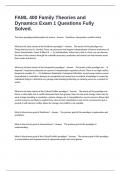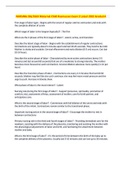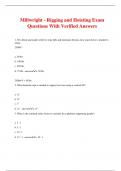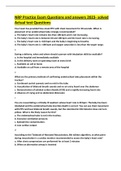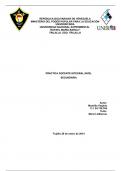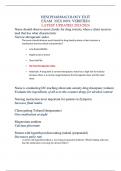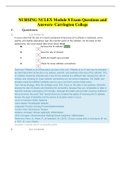Exam (elaborations)
FAML 400 Family Theories and Dynamics Exam 1 Questions Fully Solved.
- Module
- Institution
The three paradigms/philosophies of science - Answer Positivism, interpretive, conflict/critical What are the basic tenets of the Positivism paradigm? - Answer The tenets of this paradigm are: · Things that just are (ie. Gravity); There are processes that happen independently of human awa...
[Show more]
